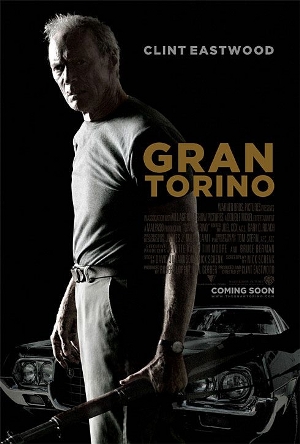By Emily Hoover | gargoyle@flagler.edu
In an age of cheap horror, action and jokes, a good film which mirrors the trials of everyday life is difficult to find. Clint Eastwood, who has made many successful films as an actor, continues to immortalize film as a director. Each film he makes is simple and insightful, raw and poignant. He follows “Changeling,” a beautiful and exciting adaptation of a true story, with “Gran Torino,” something completely fictional, yet could, and does, happen in real life.
Set in Detroit, once an industrial powerhouse and now a place of poverty, Eastwood’s idea epitomizes the American’s struggle.
His character, Walt Kowalski, is a hardened, patriotic veteran and a relentless bigot trapped in a neighborhood that has been seized by immigrants. Following the death of his wife, Walt spends most of his time spitting racial slurs, criticizing everything and drinking cheap beer with his dog, Daisy.
Walt’s abrasive disposition changes gradually, however, when his young neighbor, Thao (Bee Vang), amid pressure from a notoriously violent Hmong gang, tries and fails to steal Walt’s prized 1972 Gran Torino. Thao’s feisty, quick-witted sister Sue (Ahney Her) forces Thao to work for Walt, and as they get to know each other, and Walt finds an unlikely friend in Sue, he becomes close with the family. As gangs threaten to destroy their friendship, Walt’s role as the friend and father figure transmutes into that of the self-sacrificing protector.
While this film is violent and heartbreaking at times, novice writer Nick Schenk’s funny dialogue adds balance. Walt is crude and crass, but also silly and charming. Weathered and furrowed, Walt, on the surface, is the typical Eastwood character. Yet, his soft side, humorous and endearing, is reminiscent of “The Bridges of Madison County.” As this film is about the violence which plagues this country and the social and economic obstacles that we face, it is also about the individual struggle for companionship, trust and respect.
Complete with simplistic set design, dazzling cinematography and sculpted symbolism, it is retro as well as innovative. Like the Gran Torino, Eastwood’s vision is perfectly polished, fresh and clean for decades to come.



Be the first to comment on "MOVIE REVIEW: ‘Gran Torino’"